Nigeria has many affordable places to reside. If you are looking for the Cheapest Cities to Live in Nigeria, then read this article to the end.
Nigeria is a big nation with over 220 million people. It has a land mass of 356,668 sq. with six geopolitical zones. There are lots of cheap cities to live in the country. Are you an entrepreneur, salary earner, or foreign investor? Irrespective of your status, rest assured there is a suitable place for you to reside in Nigeria.
The country has very good locations that offer cheap utilities. Basic amenities like housing, food, internet, and electricity are affordable in these areas. If you find any of these cheapest places to live, you can save up more for other pressing needs.
In this article, we want to explore the 10 cheapest cities to live in Nigeria. You will learn the important details you need to make your informed decisions. But first, we will discuss some reasons why people seek these cheapest cities to live in Nigeria.
Reasons why people seek these cheapest cities to live in Nigeria.
7 Reasons People Seek Cheapest Cities to Live in Nigeria
Many people in Nigeria aim to live low, especially because of high inflation in the country. Below are 7 reasons people want to live in affordable cities in Nigeria:
- Low Cost of Living
- Financial Constraints
- Business Opportunities
- Retirement Plans
- Education Costs
- Business Ventures
- Lifestyle Preferences
Where are the 10 Cheapest Cities to Live in Nigeria
1. Ibadan
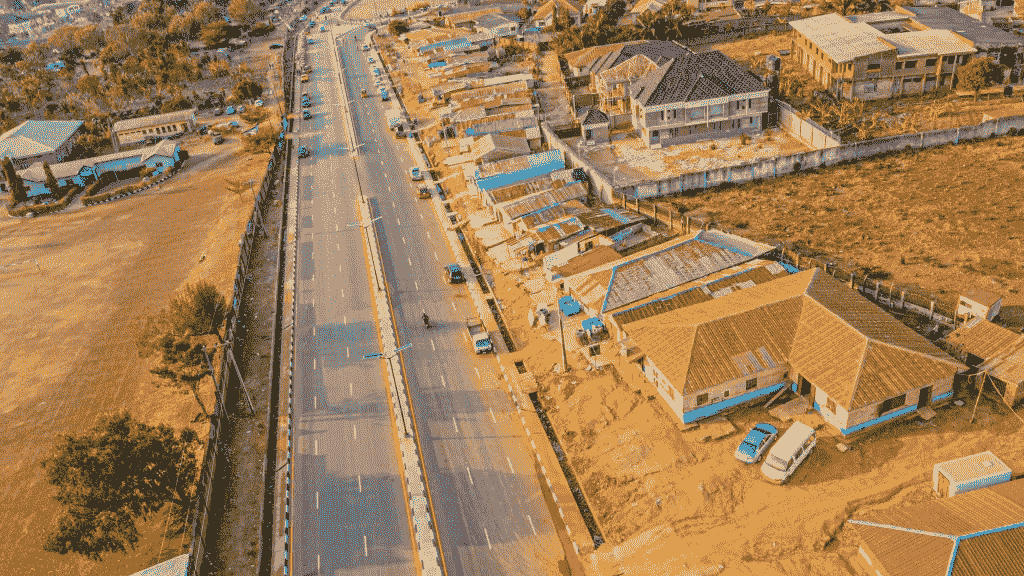
Ibadan is a great place to live in Nigeria. It is also referred to as IB City. It is the capital of Nigeria’s respected Yoruba kingdom, Oyo State. In Ibadan, you will find most areas both savvy and affordable to live in.
Ibadan is the third largest city by population, according to official reports. This record follows Lagos and Kano. The city is booming with good metropolitan activities. There is a suitable road network, and very accessible to other major cities like Lagos.
The city also played a crucial role in Nigeria and Africa’s socio-economic landscape. This is why JBC, a reputable Businessmen’s Club, refers to it as the city of the Firsts.
The UN Human Settlements Program ranked it as one of the fastest-growing cities in Sub-Saharan West Africa. The city is growing rapidly. Yet, despite its rich history and development, it is an affordable place to live.
One of the city’s highlights is the prestigious University of Ibadan. The institution has ranked consistently among the top universities globally. This proves Ibadan’s reputation as a hub for education. The university provides quality education at a low cost. Additionally, several primary and secondary schools offer affordable education options for families.
This affordability feature makes Ibadan an attractive destination. Individuals and families seeking a cheap place to live may consider Ibadan. Anyone can enjoy a unique life in Ibadan, especially around places like Bodija, Ile-Ife, Ojaba, and Ring Road.
Movement around Ibadan is stress-free as finding your way around the city is easy. Public transportation, such as cabs (also known as Micra), tricycles, and buses, are popular means of transportation. From Ibadan, you can get a bus to almost all states in Nigeria, making it easy to travel and send goods to other parts of the country.
Different regions in Ibadan are known for being sources of different items. For example, Bodija Market is where you can get foodstuffs; you can find thrift items in Dugbe, and fresh fruits in Oje. To get fresh and affordable foodstuffs, you can visit Akinyele Market, which is one of the biggest fresh food markets in Ibadan.
Rent in Ibadan is affordable. You can get a room-and-parlour apartment around Sango-Mokola for ₦60,000 (39 USD) per year, or ₦220,000 (140 USD) per year for a room-and-parlour self-contained apartment in Old Bodija. The prices vary depending on the neighbourhood.
Ibadan also offers fun activities even if you’re on a budget. You can visit the Odu’a Museum, climb Bower’s Tower to get a view of the city, visit the zoo at the University of Ibadan, or relax at Agodi Gardens.
2. Maiduguri
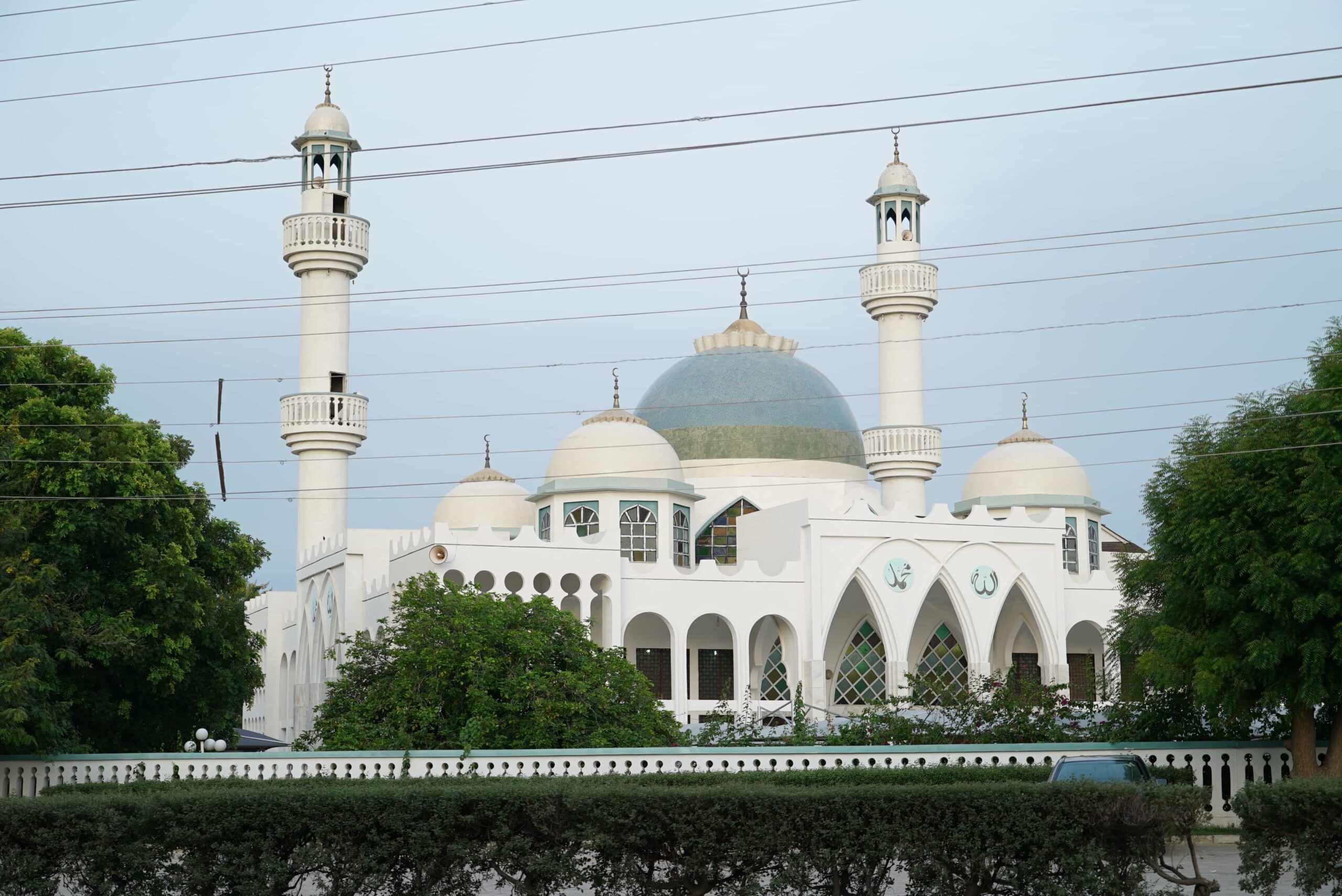
This is the city that takes the cake when it comes to the inexpensive places to live in Nigeria. No wonder then that the NBS observed that while Nigeria’s headline inflation rate was at 33.69% in April 2024, Borno of which Maiduguri is the capital city, recorded 26.09%. The state’s food inflation however peaked at 35.41% in the month under review. A basket of fresh vegetables costs as little as N500(0.32 USD) in Maiduguri, while a kilogram of rice is around N250 (0.16 USD). All sorts of fish, which are sourced from nearby Lake Chad, are one of the city’s major competitive advantages.
Borno borders the Republic of Niger to the north, Lake Chad (and the Republic of Chad) to the northeast, and Cameroon to the east. Meanwhile, Maiduguri has a well-organized network of commercial tricycles, motorcycles, and minibuses that serve as the primary modes of public transport for residents. Most trips within the city cost an average of N50(0.032 USD) and N200 (0.13 USD). For those who prefer to drive in their private cars, the cost of fuel is relatively low and they get to spend less on the maintenance of their vehicles given that the city borders a neighbouring country where importation thrives.
The average rent for a standard two-bedroom apartment in Maiduguri can be as low as N150,000 (95.98 USD). From visiting historical sites like Shehu’s Palace to experiencing the rich cultural festivals and events, there is always something to do without spending much. Local eateries and restaurants serve traditional dishes at low prices, allowing residents and visitors to enjoy the culinary delights of the region.
3. Benin
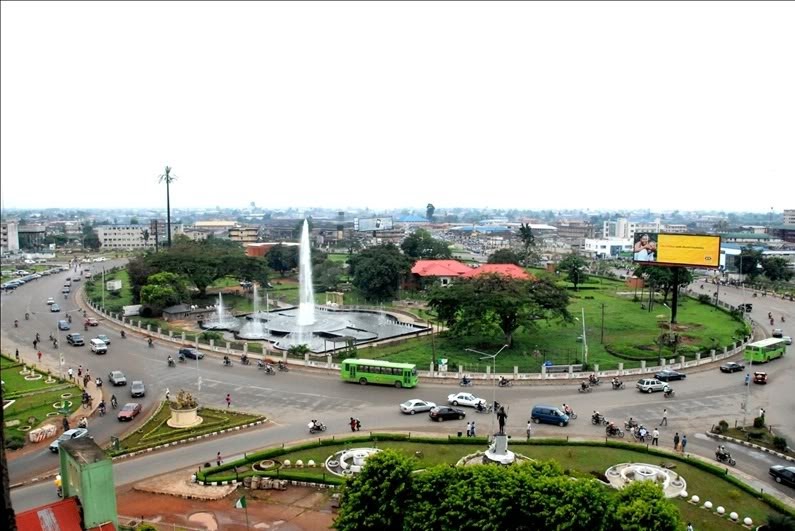
For those who love historical places and still seeking to find the Cheapest Cities to Live in Nigeria, then Benin is the place. The ancient city of Benin is in southern Nigeria. This city is the capital of Edo State and is also the home of the rich Bini culture. The languages mainly spoken include Bini, Esan, and Pidgin English. The pidgin is quite different as it has special slang, so it might be a bit confusing to visitors but would catch on.
On arriving in Benin City, the roads are filled with yellow and red-coloured buses and cabs, which you can board to get around the city. Motorcycles popularly known as Okada are only found in selected neighbourhoods as they are banned from the city’s main roads. You can also get Ride-hailing services such as Bolt and inDrive, which can come in handy if you’re unsure of how to get to your destination.
As with other parts of Nigeria, rents in Benin City depend on the specific location. Cheaper options can be found in neighbourhoods like Ikpoba Hill, Upper Sakpoba, East Circular, and Uselu, while more expensive options are found in places like GRA, Ugbor, Airport Road, Isihor, etc.
Benin City has different markets which supply residents living around them. The major markets in Benin include Uselu, New Benin, Oba Market, and Ikpoba Hill markets where you can get fresh foodstuffs, groceries, and other items. Food items are usually cheaper when they are in season. A tip to save money when planning your meals is to purchase food items that are in season and plan your meals around them or store them for when they are out of season and expensive.
4. Jos

This is the capital city of Plateau State in North-central Nigeria, and it stands out as being part of the Cheapest Cities to Live in Nigeria. According to National Bureau of Statistics (NBS) data, all-item inflation in the state stood at 31.41% in April 2024 with food inflation at 36. 97%. Compare this statistic with Kogi, another North-central state, which has the highest all-item inflation rate of 40.84% in the same month with an extremely high food inflation rate of 48.62%.
The Tin City (as Jos is fondly called) benefits from its agrarian surroundings, with rural farmers supplying fresh produce to Jos residents at low prices. This coupled with the abundance of fertile local farms in the metropolis guarantees the abundance of staples such as yams, rice, tomatoes, and other vegetables which are usually sold at giveaway prices before they go bad. This is also why dining out is pocket-friendly, with numerous bistros offering traditional Nigerian meals at affordable prices.
As per housing, whether you’re looking for a modest apartment or a larger family home, there are reasonably priced options. Jos boasts of lots of homeowners because the cost of purchasing property is also relatively low. There is also the transportation savings that come with living in Jos. The ease of navigation that comes with the city’s layout and infrastructure makes public transportation options like minibuses and commercial motorcyclists (Okada) very affordable and widely available. Leisure lovers can have as much fun and recreation in Jos without spending much courtesy of the natural beauty of places like the Jos Wildlife Park and the Shere Hills.
5. Ikot Ekpene
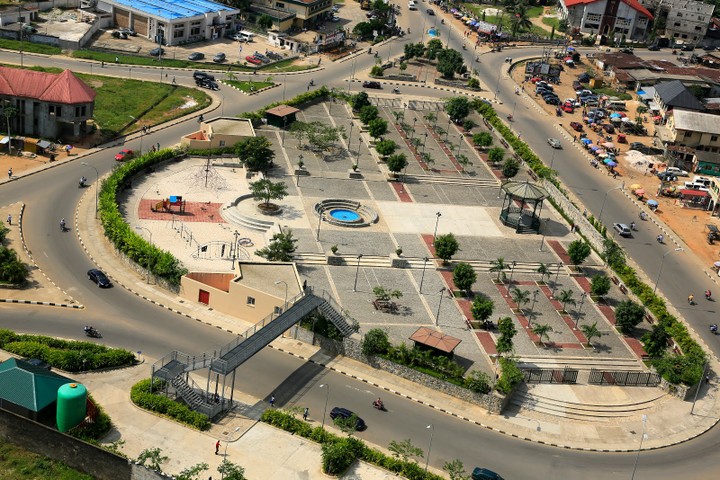
Akwa Ibom is the Nigerian south- southern state that hosts Ikot Ekpene. The city is amongst the Cheapest Cities to Live in Nigeria. It is also a chief trade centre with a bias for agricultural farm produce.
Ikot Ekpene is densely populated, especially by the Anag people of Akwa Ibom State. There are other tribes here too including Igbos, Yorubas, southerners, and northerners. They flock to this region to either live or start a business in Palm oil produce or raffia crafts.
The area is reputable for palm oil production and exports. Another attraction to this riverine community is the cane furniture and basket handicrafts. Some entrepreneurs develop this skill to feed their families and build a business. This makes Ikot Ekpene known as the Raffia City.
If you would love to live here, you can opt for the hospitality industry. The hotel business is one of the strongest markets, contributing to the Akwa Ibom total GDP. Other sectors are also developing with improved infrastructure and public services.
The city also hosts several educational institutions. There are good housing options, healthcare facilities, and ample food resources. The roads are accessible to other Nigerian metropolitan areas. These factors and many more make Ikot Ekpene an affordable area to either live or raise a family.
6. Lagos
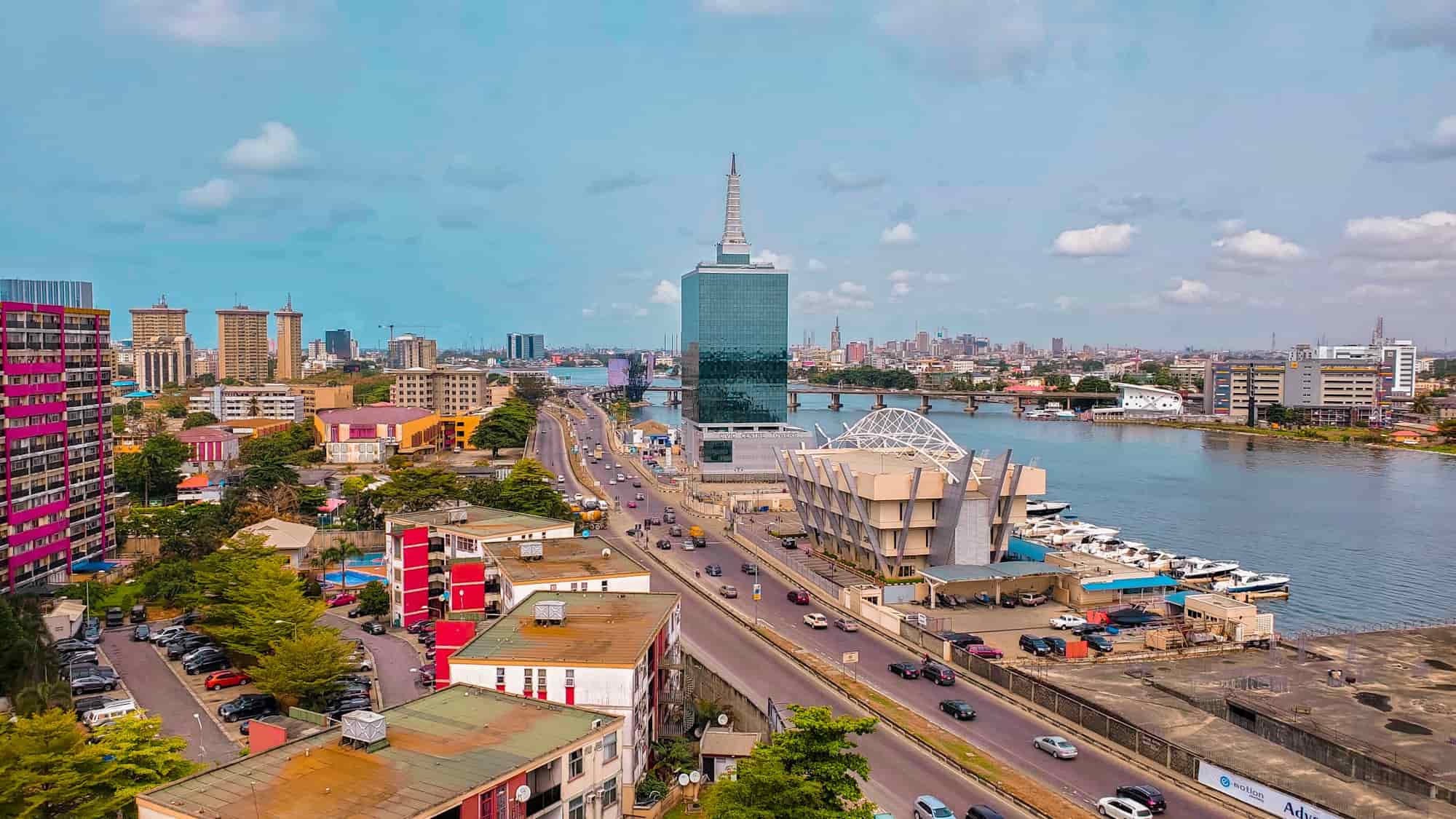
This article is not complete without Lagos as one of Nigeria’s cheapest places to live. Lagos is not just a key city in Nigeria but in Africa, and the global socio-economic scene.
It is well known for its vibrancy and urban life. This has necessitated Lagos to be called different names. This includes the Centre of Excellence, Lasgidi, Nigeria’s powerhouse, the London of Africa, and the like.
According to the 2024 Statista report, Lagos is the most populated city in Africa. The state has over 8 million inhabitants living in the city. With all of these factors, it is easy to conclude Lagos is one of the most expensive cities to live in Nigeria.
However, there are places in Lagos where the cost of living will amaze you. You find the prices of food cheap. These places are on the mainland, in areas like Ojo, Mushin, Ajegunle, Agege, and Badagry.
These places are also accessible to urban life and high-tech infrastructures. The cost of housing here depends on proximity to the Highlands. You can get a two-bedroom apartment for N2 million(1280 USD) per annum or less in some of the locations.
The cost of food prices is also cheap. What could be on the higher side is transportation fares. This is a result of heavy traffic and other environmental factors. However, the use of government-approved buses can help citizens mitigate costs.
7. Enugu
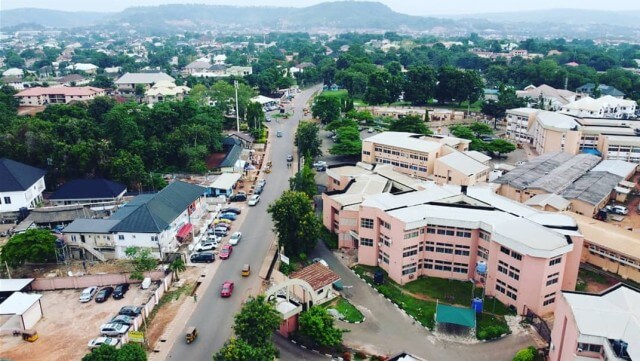
Widely acclaimed for its assorted dishes, rich cultural heritage, friendly residents, and serene environment. According to the National Statistics Office’s CPI, Coal City and its mother state recorded 29.93% in the headline inflation rate for April 2024, decreasing from 30.25% in the previous month. The food inflation rate also dropped to 41.45% in April from 43.27% in March 2024. People living in Enugu have no reason to go hungry given the arable land and favourable climatic conditions which favor large-scale agricultural activities.
The resultant abundant local produce finds its way to markets in the city from surrounding rural areas, thereby spoiling Enugu residents for choices in terms of fresh, affordable fruits, vegetables, and other staples all at very affordable prices.
When it comes to transportation, the city’s compact size makes for shorter travel distances, reducing fuel and maintenance costs for those who own private vehicles. This is in addition to a well-developed network of roads and public transportation systems operated by buses, taxis, and motorcycles that are as reliable, and they are cost-effective.
Rental prices are also fair when compared to what is obtained in other major Nigerian cities. However, persons wishing to reside in Enugu must brace up for the acute water shortage in the city.
Recommended 🌍: Top 5 places to visit in Albania and the cost of living in 2024
8. Kano
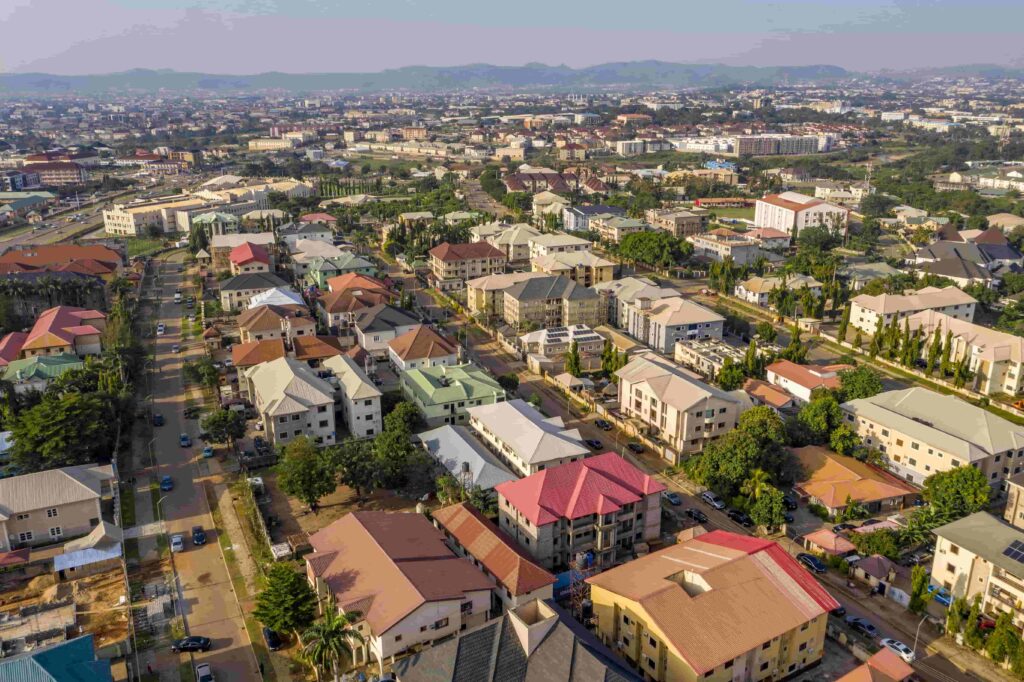
Northern Nigeria has over 15 states, but Kano is the most popular of them all. Aside from its being the second largest city in Nigeria after Lagos, it is also a thriving one.
Kano state is the economic hub of northern Nigeria. It hosts the Bayero University and Mallam Aminu Kano International Airport. If you intend to move to the north, you should consider an affordable location in Kano.
The state provides good living conditions with a rich industrious informal sector. It is also the home of the Billionaire business mogul, Aliko Dangote, the richest man in Africa. According to the Forbes 2024 Billionaire list, Dangote made it to the 144th position of wealthiest people in the world. The business mogul recently reinstated his commitment to improve Kano’s socio-economic development.
Residents of Kano benefit from locally produced goods, as they are readily available at lower prices. For example, in Local markets like the Kurmi market, you can get fresh food items that are produced locally like millet, rice, groundnut, vegetables, and fruits, at low cost compared to those imported from other states or countries.
Hausa is the language mainly spoken by people in Kano. The people are friendly and welcoming. Apart from cars and yellow tricycles as means of transportation, bicycles are popular means which people use to get around in Kano.
Kano has a variety of Mouthwatering dishes, which locals and visitors enjoy. The popular ones include suya, masa, fura de nunu, and tuwo. Fun activities to do in Kano include visiting the Kano Zoo and Minjibir Park Other notable sites include the Gidan Makama Museum, the Kofar Mata dye pits, and the ancient Kano City Walls.
9. Aba
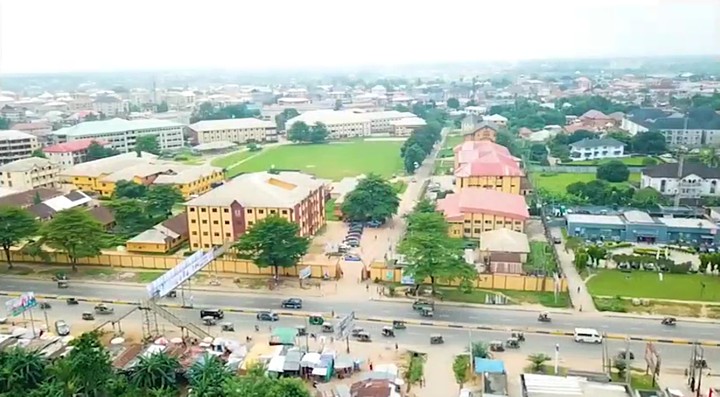
Aba is the largest city in Abia State, and it is also considered one of the Cheapest Cities to Live in Nigeria. The people in Aba are known to be friendly and business-minded. If you’re looking for business opportunities or you have an entrepreneurial spirit, then Aba is ideal for you. The cost of living in Aba is relatively low, and the power supply in the city is one of the best in Nigeria.
Aba has different markets such as the Ariaria International Market which is one of the largest markets in West Africa, where you can get a wide range of products such as locally produced fashion items and electronics.
The commerce of the city affects the cost of living. The city is known for small-scale factories that produce the popularly known ‘Made in Aba’ items. This contributes to the affordable cost of living, as you can get locally produced goods cheaper than imported ones.
If you are looking to settle in Aba, several neighbourhoods like Umungasi and Eziukwu are popular due to their closeness to commercial centres and their affordable rents.
Aba is known for mouthwatering dishes such as Abacha (African salad), Nkwobi, Palmwine and Pepper soup, which people enjoy in bars, after a long day’s work.
10. Makurdi
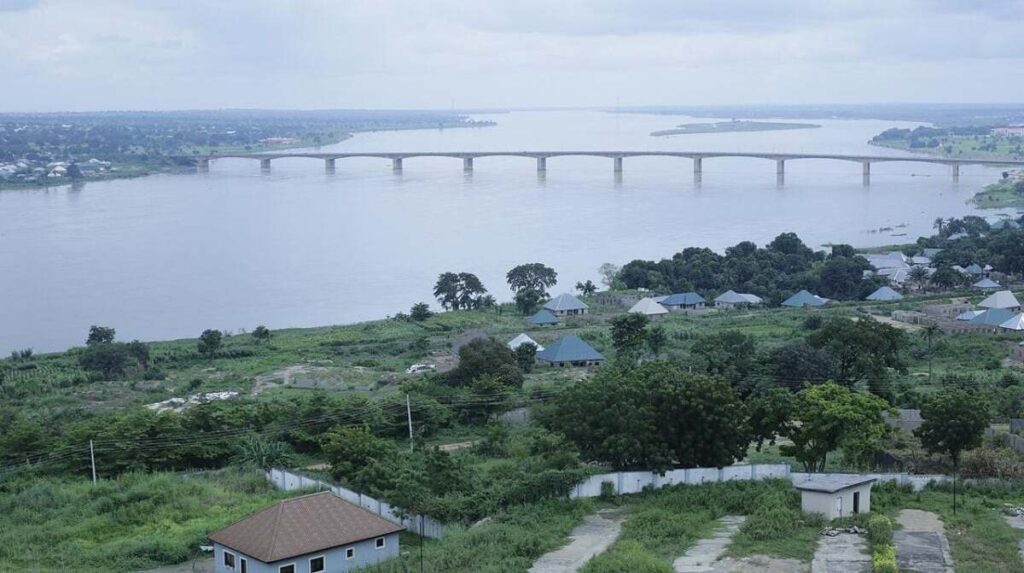
Makudi is the capital of the Benue state, the food basket of the nation. The city is traditionally known for its very good yams. The state remains an agricultural centre, buying certain foods in the state saves money for other necessary expenses.
Numerous local markets offer fresh produce at reasonable prices. This food resource is one special feature that makes Makurdi a good and affordable place to stay in Nigeria.
The city has basic infrastructure. There are also reputable private firms and establishments. Some of them include educational institutions, healthcare facilities, and other governmental agencies.
As of April 2024, the food inflation rate in the Northcentral state is 37.56% while the all-item inflation for the same month is reported by the NBS to be at 27.53%. You will find Makurdi to be a very cheap place to inhabit on account of several factors, especially the nutritious fish that swim the River Benue banks.
The abundant water resources aside from helping in irrigation activities provide a means of transportation well taken advantage of by residents. This is even as intra-city transport via Okada or Keke costs between N100(0.064 USD) to N200(0.13 USD). Water bodies running through the city, which are steeped in rich cultural heritage, support recreational activities almost at no cost.
The housing market is so pocket-friendly that one can rent a two-bedroom flat for N150,000(95.98 USD) per annum in areas that can be deemed high-brow locales. More so, the fact that Makurdi is a major gateway from the northern to the southern part of Nigeria makes it some sort of tourist centre providing opportunities for brisk businesses along the highway.



0 Comments